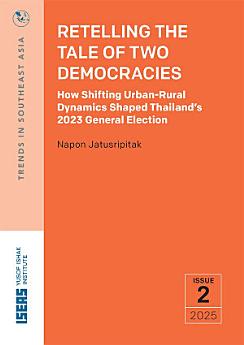Retelling the Tale of Two Democracies: How Shifting Urban-Rural Dynamics Shaped Thailand’s 2023 General Election
About this ebook
As urbanization spreads across Thailand, political candidates adapt their campaign strategies to appeal to voters across the urban-rural divide in their constituencies, leveraging the resources and competitive advantages that come with their party affiliation.
Parties with strong ideological stances and popular prime ministerial candidates who took clear positions on political reform performed better in urban constituencies than rural ones. Conversely, parties that specialized in candidate-centred, locally driven campaigns—including vote-canvassing networks—saw greater success in rural constituencies.
A visible trend of ballot splitting emerged in rural constituencies, where voters frequently supported nationally appealing parties like the Move Forward Party (MFP) in the party-list vote but chose local candidates from other parties for constituency seats.
A more urbanized electorate nationwide, combined with rural voters’ strategic distinction between national and local preferences, enabled the MFP to win constituency seats outside major cities and secure strong party-list support across the urban-rural spectrum.
About the author
Napon Jatusripitak is Visiting Fellow and Coordinator of the Thailand Studies Programme at the ISEAS – Yusof Ishak Institute, Singapore.








